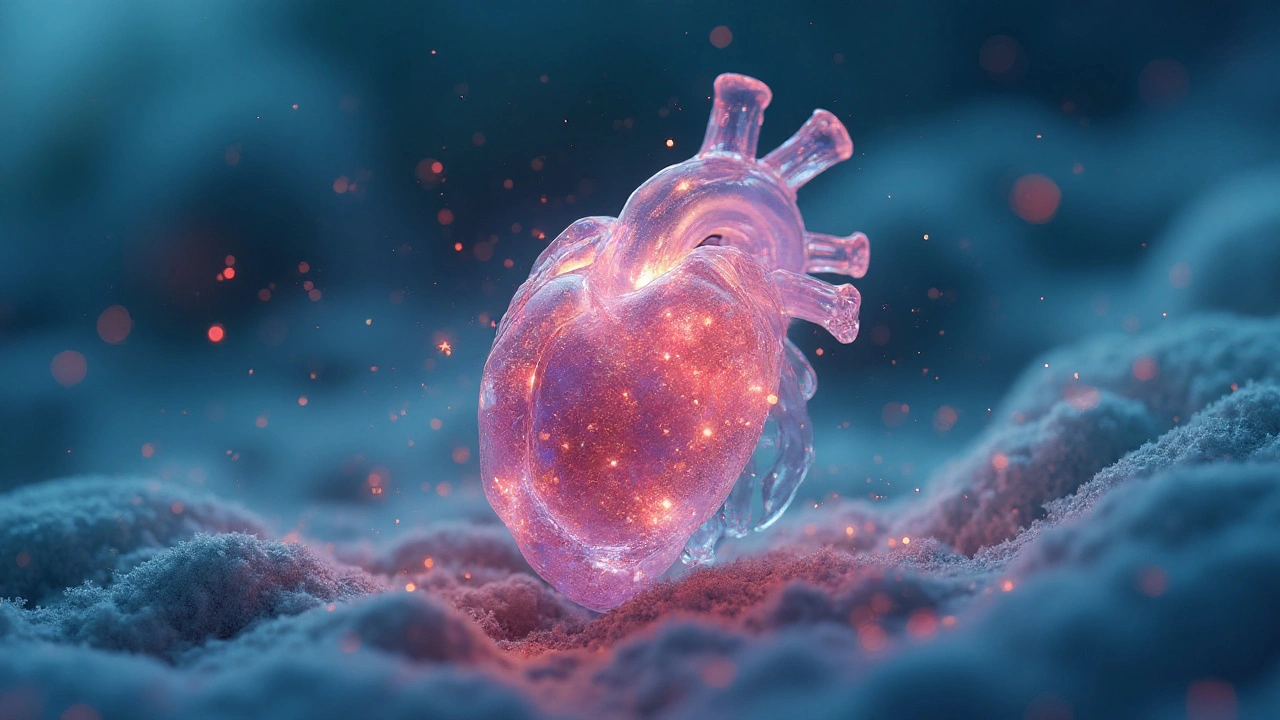When you type “Empagliflozin” into a search bar, you’re probably looking for a clear picture of what this drug is, how it can help, and what to watch out for. Below you’ll get a straight‑forward rundown that answers those questions and gives you practical steps to use the medication safely.
- TL;DR: Empagliflozin is an SGLT2‑inhibitor used for type 2 diabetes, heart failure, and chronic kidney disease.
- It lowers blood sugar by helping kidneys dump excess glucose in urine.
- Clinical trials show a ~38% drop in cardiovascular death for high‑risk patients.
- Common side effects include genital infections and mild dehydration; severe issues are rare but include ketoacidosis.
- Take it with food, stay hydrated, and keep regular lab checks.
What Is Empagliflozin?
Empagliflozin is a prescription medication that belongs to the class of sodium‑glucose co‑transporter‑2 (SGLT2) inhibitors. It was first approved by the Therapeutic Goods Administration (TGA) in Australia in 2014 and has since become a staple for managing type2 diabetes and related cardiovascular conditions.
The drug works by blocking the SGLT2 protein in the kidney’s proximal tubules. Normally this protein re‑absorbs most of the glucose filtered by the kidneys back into the bloodstream. By inhibiting it, empagliflozin forces the body to excrete about 50-60g of glucose per day through urine, which directly lowers blood‑sugar levels.
Beyond glucose control, the resulting osmotic diuresis (extra fluid loss) reduces blood pressure and eases the heart’s workload - a key reason why doctors also prescribe it for heart failure with reduced ejection fraction (HFrEF) and for protecting kidney function.
How It Works and Approved Uses
Understanding the mechanism helps you see why the drug is valid for several conditions:
- Type2 Diabetes: Lowers HbA1c by 0.6‑1.0% on average when added to metformin.
- Heart Failure (HFrEF): Reduces risk of cardiovascular death by 38% (EMPEROR‑Reduced trial).
- Chronic Kidney Disease (CKD): Slows eGFR decline in patients with and without diabetes (EMPA‑KIDNEY trial).
In Australia, the TGA labels empagliflozin for:
- Adults with type2 diabetes inadequately controlled on diet, exercise, or other meds.
- Adults with HFrEF to reduce cardiovascular death and hospitalisation.
- Adults with CKD to delay progression to end‑stage renal disease.
It’s not approved for type1 diabetes or for use in pregnancy, and kids under 18 should only take it under specialist supervision.

Benefits, Risks and Side Effects
Empagliflozin’s biggest selling point is the dual benefit for blood sugar and heart/kidney health. Below is a snapshot of what the data say.
| Outcome | EMPA‑REG OUTCOME (Diabetes) | EMPEROR‑Reduced (Heart Failure) | EMPA‑KIDNEY (CKD) |
|---|---|---|---|
| Cardiovascular death reduction | 38% (HR 0.62) | 38% (HR 0.62) | - |
| Hospitalisation for heart failure | 35% (HR 0.65) | 25% (HR 0.75) | 30% (HR 0.70) |
| eGFR decline (annual) | -0.5mL/min/yr | -0.3mL/min/yr | -0.2mL/min/yr |
Key benefits summarized:
- Significant drop in major adverse cardiovascular events.
- Weight loss of 2‑3kg on average due to caloric loss in urine.
- Modest blood‑pressure reduction (3‑5mmHg systolic).
But no drug is risk‑free. Most side effects are mild, yet a few warrant attention:
- Genital yeast infections: More common in women; keep the area clean and report persistent symptoms.
- Urinary tract infections: Usually treatable with a short course of antibiotics.
- Dehydration & low blood pressure: Drink plenty of fluids, especially if you’re active or live in hot climate.
- Euglycaemic diabetic ketoacidosis (EDKA): Rare but serious; watch for nausea, abdominal pain, rapid breathing.
- Bone fractures: Small signal in early studies; maintain calcium and vitamin D intake.
“In the EMPA‑REG OUTCOME trial, empagliflozin demonstrated a 38% relative risk reduction in cardiovascular death, marking a paradigm shift for diabetes care.” - American Diabetes Association, 2023
Practical Tips for Patients and Caregivers
Knowing the science is one thing; using the medicine safely in daily life is another. Here are actionable steps to make the most of empagliflozin while keeping risks low.
- Start low, go slow: Most doctors begin with a 10mg tablet once daily, often taken with breakfast.
- Take with food: Reduces stomach upset and helps the drug absorb evenly.
- Stay hydrated: Aim for at least 2‑3L of fluid per day unless your doctor says otherwise.
- Monitor blood sugars: Check fasting glucose daily for the first week, then weekly once stable.
- Check ketones if sick: During illness, infection or when you’re not eating, test urine for ketones to catch EDKA early.
- Regular labs: Follow up with your GP for eGFR, electrolytes, and HbA1c every 3‑6 months.
- Discuss other meds: Certain diuretics, insulin, and NSAIDs can interact; always update your prescriber.
- Pregnancy & breastfeeding: Switch to an alternative; empagliflozin is not recommended.
FAQs
- Can I drink alcohol? Moderation is key. Alcohol can increase dehydration and hypoglycaemia risk, especially if you’re also on insulin.
- What if I miss a dose? Take it as soon as you remember unless it’s almost time for the next dose - then skip the missed one.
- Do I need to stop before surgery? Usually stop 48‑72hours prior; your surgeon will give specific instructions.
- Is there a generic version? Yes, several Australian pharmacies stock a generic form that is cheaper but bio‑equivalent.
If you experience any of the serious side effects listed above, contact your doctor immediately or head to the nearest emergency department.
Finally, keep an eye on emerging research. New studies in 2025 are looking at empagliflozin’s role in reducing dementia risk and improving liver health in NAFLD patients. While promising, these uses remain investigational.
By staying informed, hydrated, and in close touch with your healthcare team, you can harness empagliflozin’s full therapeutic potential while keeping complications at bay.


Just started empagliflozin last month and honestly? My HbA1c dropped from 8.2 to 6.9 in 90 days. No more midday crashes. Also lost 4 lbs without trying. The only downside? My wife says I smell like sweet urine now lol.